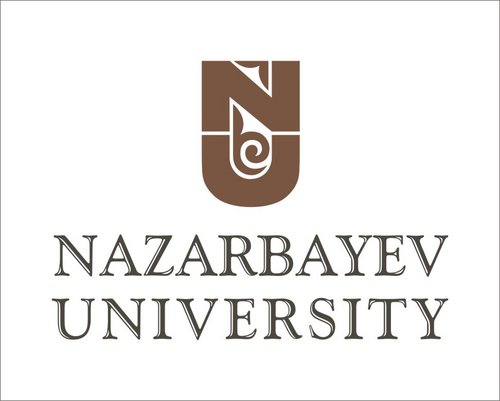Team:NU Kazakhstan
From 2013.igem.org
(Difference between revisions)
| Line 1: | Line 1: | ||
| - | < | + | <html> |
| - | |||
| - | |||
| - | |||
| - | |||
| - | |||
| - | |||
| - | |||
| - | |||
| - | |||
| - | |||
| - | |||
| - | |||
</html> | </html> | ||
| - | + | |[[Image:NU_Kazakhstan_logo.png|100px|center|frame]] | |
| - | + | ||
| - | + | ||
| - | + | ||
{|align="justify" | {|align="justify" | ||
|Our team consists of five enthusiastic undergraduate students, who manifest genuine interest in the sphere of ''Synthetic Biology''. We became familiar with '''IGEM''' competition in summer 2012 and asked our faculty to organize special Synthetic Biology course in order to learn more about this exciting sphere of biology. Fortunately, our professors also became interested in this competition and were glad to organize two wonderful courses of Synthetic Biology. These courses gave us a great background in many different topics, but the most interesting topic for us was the ''application of aptamers'' in diagnosis, treatment and research. Then, in April 2013 we asked Dr. Damira, our mentor, who has been working with aptamers in our University research center, to join her team in lab. After working with aptamers more closely we started discussing our ideas for the IGEM project. After long discussions we came with the idea of the development of biosensor for detecting cancer at early stages using aptamers. We are planning to construct the system which will be similar to sandwich assay. In this system, aptamers will bind the target protein present in a patient’s serum, and the binding will be detected using aptamers conjugated to quantum dots. | |Our team consists of five enthusiastic undergraduate students, who manifest genuine interest in the sphere of ''Synthetic Biology''. We became familiar with '''IGEM''' competition in summer 2012 and asked our faculty to organize special Synthetic Biology course in order to learn more about this exciting sphere of biology. Fortunately, our professors also became interested in this competition and were glad to organize two wonderful courses of Synthetic Biology. These courses gave us a great background in many different topics, but the most interesting topic for us was the ''application of aptamers'' in diagnosis, treatment and research. Then, in April 2013 we asked Dr. Damira, our mentor, who has been working with aptamers in our University research center, to join her team in lab. After working with aptamers more closely we started discussing our ideas for the IGEM project. After long discussions we came with the idea of the development of biosensor for detecting cancer at early stages using aptamers. We are planning to construct the system which will be similar to sandwich assay. In this system, aptamers will bind the target protein present in a patient’s serum, and the binding will be detected using aptamers conjugated to quantum dots. | ||
| - | |||
|- | |- | ||
| | | | ||
Revision as of 05:35, 7 June 2013
|
| Our team consists of five enthusiastic undergraduate students, who manifest genuine interest in the sphere of Synthetic Biology. We became familiar with IGEM competition in summer 2012 and asked our faculty to organize special Synthetic Biology course in order to learn more about this exciting sphere of biology. Fortunately, our professors also became interested in this competition and were glad to organize two wonderful courses of Synthetic Biology. These courses gave us a great background in many different topics, but the most interesting topic for us was the application of aptamers in diagnosis, treatment and research. Then, in April 2013 we asked Dr. Damira, our mentor, who has been working with aptamers in our University research center, to join her team in lab. After working with aptamers more closely we started discussing our ideas for the IGEM project. After long discussions we came with the idea of the development of biosensor for detecting cancer at early stages using aptamers. We are planning to construct the system which will be similar to sandwich assay. In this system, aptamers will bind the target protein present in a patient’s serum, and the binding will be detected using aptamers conjugated to quantum dots. | |
|
Tell us more about your project. Give us background. Use this as the abstract of your project. Be descriptive but concise (1-2 paragraphs) | File:NU Kazakhstan team.png Your team picture |
| Team NU_Kazakhstan |
| Home | Team | Official Team Profile | Project | Parts Submitted to the Registry | Modeling | Notebook | Safety | Attributions |
|---|
 "
"
